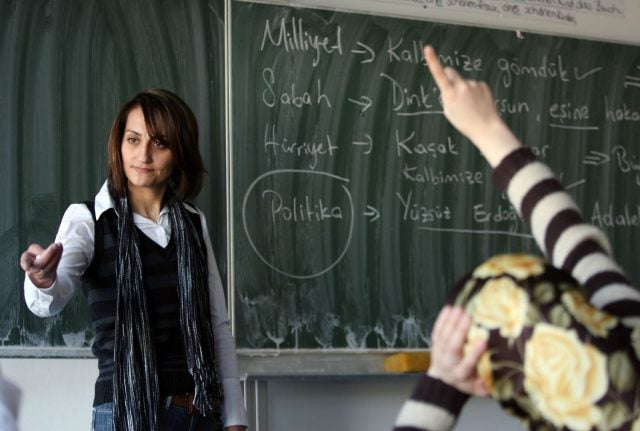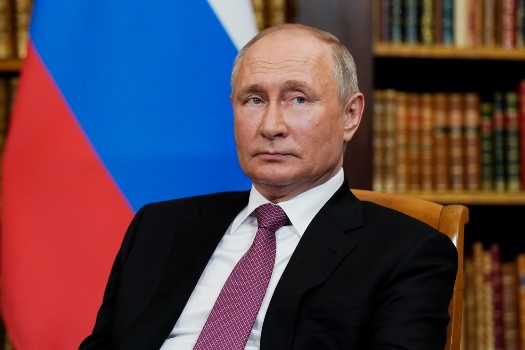The Turkish consulate in North Rhine-Westphalia (NRW) told parents and teachers at “information events” in Düsseldorf, Essen, Cologne und Münster in January that they should spy on classes at German schools, the Westdeutsche Allgemeine Zeitung (WAZ) reported on Thursday.
Attendees were told to report any criticism of Erdogan they witnessed in schools to the consulate.
“We have heard from various different sources that people were told to report every piece of criticism of Turkey, which had been heard at schools in NRW, to the consulate ,” Sebastian Krebs, a spokesperson for the Union for Education and Science (GEW) said.
“The consulate also encouraged parents to tell their children to film teachers and pass on the evidence to Turkish authorities,” he added.
The GEW also claims to have been provided with syllabuses for classes on the Turkish language and culture which had been provided to teachers by the consulate.
“These syllabuses are heavily coloured by nationalism,” said Krebs.
Nefren Tuncay, vice Consul in Düsselforf, denied the accusation to The Local.
“The claim by the GEW that pupils were encouraged to film their teachers, or that it had anything to do with politics in Turkey, is not true,” she said.
According to Tuncay, the event was to do with discrimination children of a Turkish background face in school and constructive ways in which it can be tackled.
She added that the event was transparent and open to the public and that photos and minutes on its content are freely available online.
A representative of the Turkish Parents Association of Germany (Föted) had a slightly different explanation for the meeting.
Many parents with Turkish roots complain that the Turkish government is misrepresented in German schools, Ali Sak told WAZ.
“These parents don’t have anyone who they can talk to about this other than the consulate. The real reason they were invited was so that they could discuss this problem with the consulate and with parent associations,” he said.
This is not the first time in recent weeks Ankara has been accused of spying within Germany’s large ethnic Turkish population.
Earlier in February police raided the homes of four Turkish Muslim preachers on suspicion they spied for Erdogan's government.
The imams are accused of reporting on Turkish followers of US-based Islamic preacher Fethullah Gulen, whom Erdogan blames for last July's failed coup attempt against him.



 Please whitelist us to continue reading.
Please whitelist us to continue reading.